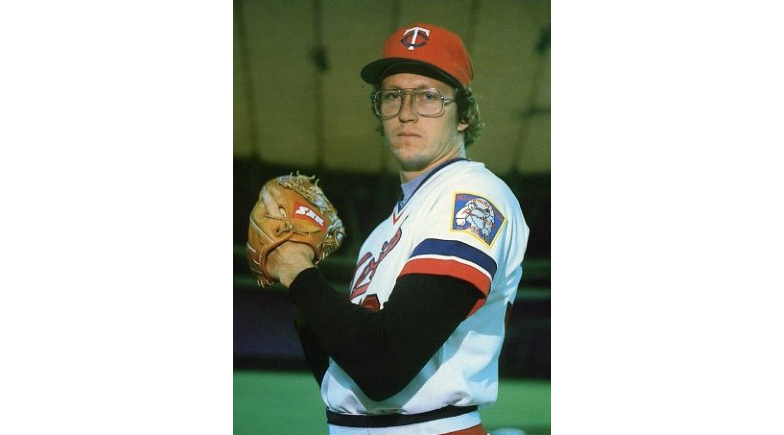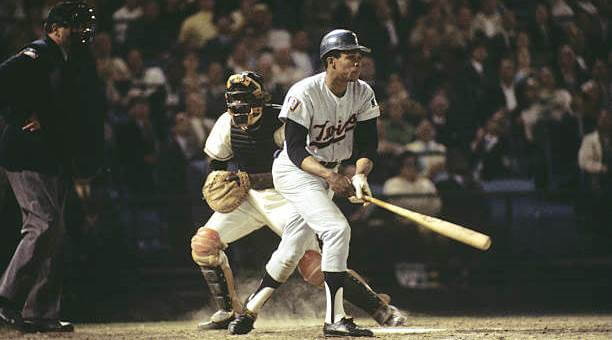SEATTLE 5, MINNESOTA 4 IN SEATTLE (10 INNINGS)
Date: Saturday, August 11.
Batting stars: Tom Brunansky was 3-for-4 with two home runs (his twenty-second and twenty-third), a walk, and three RBIs. Tim Teufel was 2-for-4 with a home run, his twelfth. Randy Bush was 2-for-4 with a double and a walk.
Pitching stars: Mike Smithson pitched 7.1 innings, giving up three runs (two earned) on seven hits and no walks and striking out six. Ron Davis pitched 1.2 scoreless innings, giving up two hits and striking out one.
Opposition stars: Salome Barojas pitched 7.2 innings, giving up three runs on eight hits and four walks and striking out four. Alvin Davis was 3-for-4 with a two-run homer (his twenty-fourth), a walk, and two runs. Steve Henderson was 2-for-4 with a double. Ken Phelps was 2-for-4. Al Cowens was 2-for-5 with a double.
The game: The Twins loaded the bases with two out in the first but could not score. The Mariners put men on first and third with two out in the first but could not score. In the third, however, Seattle did score--Jack Perconte hit a one-out double and Davis hit a two-out two-run homer to give the Mariners a 2-0 lead.
The Twins got one back in the fourth on Brunansky's homer. It stayed 2-1 until the eighth. With two out Bush walked and Brunansky struck again, hitting a two-run homer to give the Twins their first lead at 3-2.
The lead lasted until the bottom of the eighth. With one out Spike Owen reached on an error. Davis and Phelps followed with singles, tying the score, and Henderson hit a two-out double that put Seattle back in front 4-3. The Twins came right back in the ninth, as Teufel hit a leadoff homer to tie it 4-4.
The Twins went down in order in the top of the tenth. In the bottom half, Owen led off with a single and Davis walked. Barry Bonnell fouled out, but Cowens delivered an RBI single that gave the Mariners the victory.
WP: Edwin Nunez (2-1). LP: Pete Filson (6-4). S: None.
Notes: Tim Laudner was the catcher. He shared the job with Dave Engle in 1984, with Engle catching slightly more games (86 to 81). Neither was anything great at the plate--Engle hit for a better average, Laudner had more power, but both posted an OPS below .670. Neither had a reputation as a great defensive catcher, either.
Darrell Brown was in left in place of Mickey Hatcher, who was out for a few days.
Andre David pinch-hit for Houston Jimenez in the seventh. Ron Washington came in to play shortstop.
Kent Hrbek was leading the team in batting average at .326. He would finish at .311. Kirby Puckett was batting .301. He would finish at .296. Hatcher would also finish over .300, at .302.
The Twins had three solid starters in 1984: Frank Viola (18-12, 3.21), Smithson (15-13, 3.68), and John Butcher (13-11, 3.44). They couldn't find a fourth or a fifth, though. Making double-digit starts were Ken Schrom (5-11, 4.47), Ed Hodge (4-3, 4.77), and Al Williams (3-5, 5.77).
If you're like me, when 1984 came up and you saw the Twins had lost in extra innings, you may have suspected that Davis had blown the game. Well, yes and no. He came in in the eighth inning with men on first and second, one out, and a tie game. He retired one man and then gave up the RBI double to Henderson that put Seattle in front 4-3. The Twins tied it in the ninth and he retired the side in the bottom of the ninth with no trouble. Filson came in to start the tenth and Mike Walters eventually gave up the deciding hit.
Even though the Twins were in contention most of the way, they were a pretty flawed team. They had some very good players, but also some very obvious holes. We discussed catcher and fourth and fifth starter. Another hole was shortstop. Jimenez played the most there, but batted .201/.238/.245 in 317 plate appearances. Washington was a superior batter, batting .294/.307/.447 in 206 plate appearances, but he was not good enough to field the position. Others tried were Lenny Faedo and Chris Speier (at the end of his career). Had the Twins been able to find even an average shortstop, they probably would have won the division.
Record: The Twins were 59-55, in first place in the American League West, 1.5 games ahead of California. They would finish 81-81, tied for second with California, three games behind Kansas City.
The Mariners were 53-65, in sixth place in the American League West, 8 games behind Minnesota. They would finish 74-88, tied for fifth with Chicago, 10 games behind Kansas City.
Rewind Record: The Twins are 35-29 in Random Rewind games.


